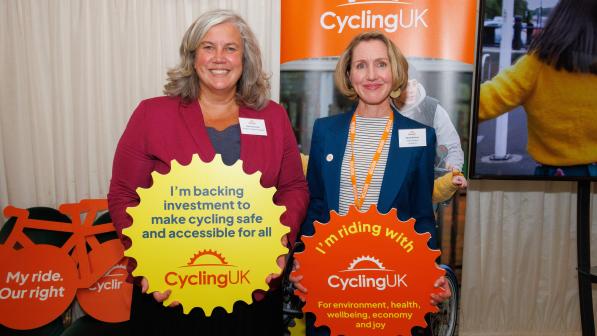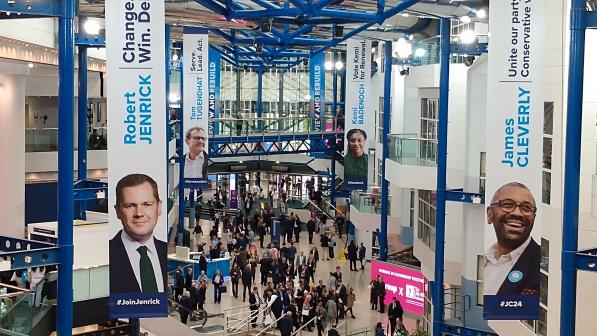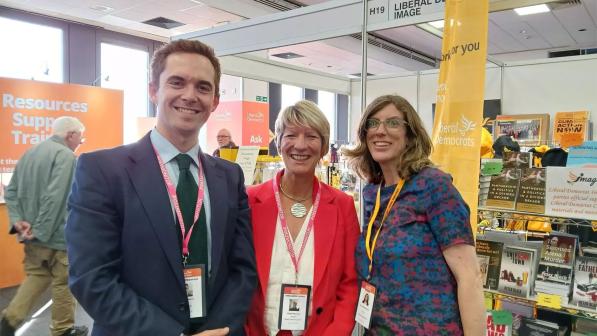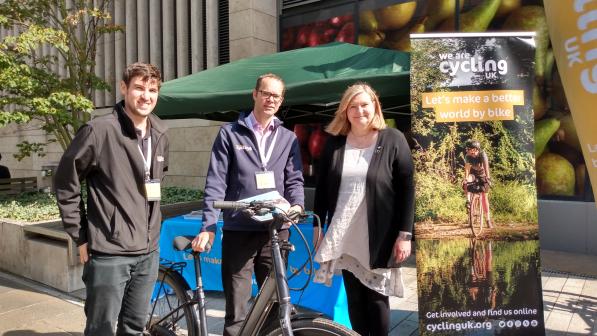Talking cycling at the Green Party conference

On an unusually warm day in Manchester the Green Party’s members, councillors and four new MPs gathered to celebrate their electoral success, discuss strategies for a wide range of policy areas, and vote on key issues.
After quadrupling their representation in Westminster from one to four MPs, as well as securing many new seats in local elections, the party’s mood was jubilant.
Better transport
One of the highlights for me was meeting Siân Berry, MP for Brighton Pavilion, for a coffee. Siân leads on transport and is no stranger to cycling, having previously campaigned for sustainable transport at the Campaign for Better Transport and implemented cycling and walking schemes as councillor and London Assembly member.
We talked about the importance of national governments providing local authorities with long-term funding for active travel and the role of cycling in improving air quality and reducing health inequalities. It was also exciting to hear about Siân’s enthusiasm for improving road safety for cyclists – and moving away from a victim-blaming culture.

Another highlight was speaking on a panel about transport decarbonisation, moderated by the Green Party’s transport spokesperson Matt Edwards, together with Stephen Frost (Institute for Public Policy Research), Emma Edwards (leader of the Green Group on Bristol Council) and Gareth Dennis (rail engineer).
I was asked to speak about the importance of mode shift: a net zero future requires not just newer vehicles (electric cars) but fewer vehicles. Of course, this is crucial for cycling: less traffic means safer, more pleasant cycling, as we saw during the Covid-19 pandemic.
In the UK, 62% of people say it would help them cycle more if there were less motor traffic on the streets. Replacing car journeys with cycle journeys is in turn one of the ways to reduce traffic.
EVs not the answer
I discussed the problems that would continue to grow if we rely too heavily on electric vehicles and allow traffic to continue growing: continued emissions, air pollution, environmental degradation, congestion, scarce urban space wasted on parking, sedentary lifestyles, and countless traffic fatalities.
With their price tags, EVs are also out of reach for many people, let alone the one-quarter of households that can’t afford any kind of car. So focusing on electrification is unequitable and insufficient.
I concluded by discussing policy options for traffic reduction and ways to frame it in an effective way, for instance by emphasising the need for government to provide people with genuine choices about how they travel. The other panellists added to these points with presentations on rail, mass transit and transport inequalities.
It was great to see lots of engagement from attendees, many of whom are councillors and have experienced first hand the challenges of trying to make their communities more cycle friendly.
One theme that emerged throughout this dialogue is that local authorities need stronger guidance from national governments to implement changes that increase cycling and walking. Otherwise, opposition – even from a small minority – makes it difficult for councils to act.

My colleagues will be headed to the Liberal Democrat, Labour and Conservative party conferences in the coming weeks – stay tuned for our updates!



